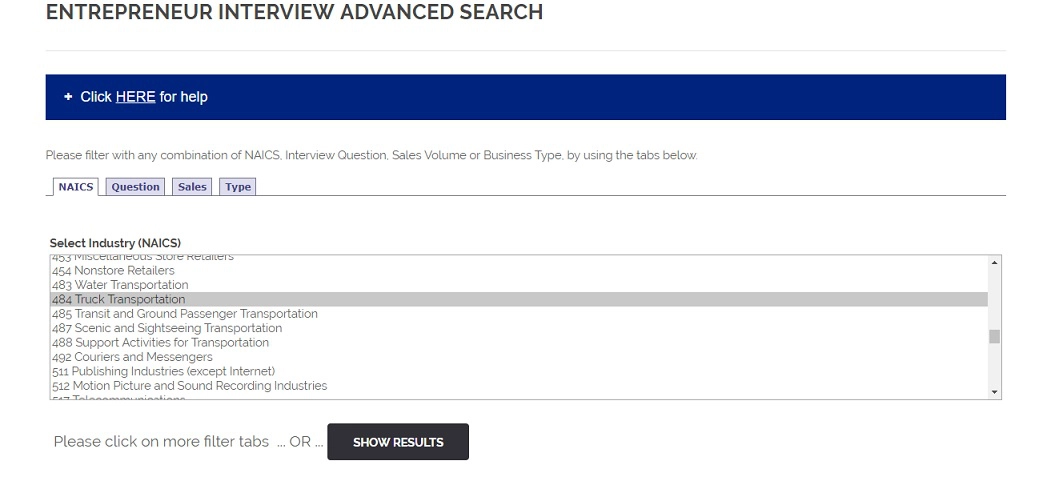 One of the biggest problems with most business plans is that they are so inaccurate that they could qualify as works of fiction. This is a well-known problem in the business and investment community. As a matter of fact, most investors consider business plans to be virtually useless.
One of the biggest problems with most business plans is that they are so inaccurate that they could qualify as works of fiction. This is a well-known problem in the business and investment community. As a matter of fact, most investors consider business plans to be virtually useless.
Why? The overwhelming majority of plans lack realistic information. Consequently, they offer no real value to investors. But, more importantly, they are useless for the entrepreneur – and that is their biggest failure. A plan’s first and most important job is to help you launch your company.
The big problem: useless research
Ten years ago I was performing the due diligence to start my company and I ran into this problem. I was writing the business plan and realized that it was full of guesstimates, projections, and sales forecasts. It was all based on “market data” and gut feelings. Nothing in it was based on actual “real experience.”
One of these days I am going to write a post describing how I started the company. To make a long story short, I jumped industries. I used to work in technology and moved to finance. Getting into an industry that appeals to you – but that you know nothing about – is difficult. And creating a viable business plan under these conditions is nearly impossible.
In the end, I realized I should not launch my business until I got some solid, real-life information about my industry. But that left me with a quandary – where could I get this information?
How entrepreneurs research business plans
Nowadays, entrepreneurs get their business plan data from three common sources:
- Internet blogs, articles, and discussion forums
- Wikipedia
- Their local library
I am not against any of these sources, but they have their problems. Information on the Internet is often scattered and unreliable. Wikipedia has interesting information, but only if you are just getting started. And your local library is a great source of information, as long as you are looking for detailed statistics.
But they all lack one thing: they don’t provide you with specific, real-life advice on how to run and grow the business you are about to start. They may have data, but it’s up to you to make the connections, draw conclusions, and formulate strategies. That is a big task.
What works: real-life advice
As I mentioned earlier, when I started Commercial Capital (about ten years ago) I knew close to nothing about factoring financing or the factoring industry. I had read about the business in a book of franchises and was very interested in the field. So I started doing some research.
At the time, there was little information out there about factoring. Actually, I had kept my college accounting class textbook. It should have had a lot of information about factoring because it is a popular business financing tool, right? Actually, it had a passing reference to factoring on page 354, footnote 3. That was it. The Internet, back when Altavista was a popular search engine, wasn’t much better either.
I knew I needed better information. Fortunately, I was able to find a couple of books with valuable information. One book was actually a manual on how to run a factoring company. It was written by a successful factoring entrepreneur. This was great help. But developing a business plan using a single book as a reference is very risky. Think about it – if you could develop successful businesses by reading books, anyone who has read an investment book could start a high-performing hedge fund and be rich.
The bottom line
The bottom line? I had OK information, but it was not enough. I was not comfortable putting my life savings into a plan that did not have a solid grounding in reality.
How I solved the problem: dialing for info
I solved the problem using a simple trick. I started contacting factoring companies in other states – places where I would not be a competitor. I asked their owners for advice. Much to my surprise, most were willing to give me real, valuable, actionable advice. It was business plan gold.
Not a single person refused to share information with me. Actually, many went the extra mile and shared very detailed information about their companies. By the way, I owe a debt of gratitude to those factors, especially to Jeff Calendar of Dashpoint Financial, who also authored many books about factoring.
The advice I got from these entrepreneurs was the most valuable business advice I ever got. Everything was relevant and actionable. This taught me a lesson. Every would-be entrepreneur who is developing their business plan should incorporate actual advice from business owners who are running companies in their industry. This is mandatory.
With few exceptions, getting this information is actually easier than it seems.
How to approach business owners and get information
As you can imagine, calling business owners out of the blue and asking them for their “secret sauce” is not going to work very well. You need a well-thought-out approach. Ten years ago I handled this by posting a message on an industry online forum (at the IFA) asking for advice. That posting got me about five responses. I then made arrangements to call (or meet) with these five entrepreneurs. In cases where they were out of state, we arranged a call.
Industry forums may be a bit outdated, but they still work. Another approach that also works well is to contact people using LinkedIn. If you ask correctly, there is a good chance that they will help you. I have been approached this way once and was happy to help.
Contact entrepreneurs who are:
- Local (if possible)
- In the line of business that you want to get into
- Not going to be competitors
The last point is critical, contact only entrepreneurs who will not be competing against you. Mention this in your first contact; otherwise, they’ll likely decline.
Develop your list of questions beforehand
Your objective is to get as much information as possible in as little time as possible. Entrepreneurs are very busy and you have to be very respectful of their time.
Develop a list of questions before the first meeting and stick to that script. Your goal is to get in, get the information, and get out. Don’t linger.
Obviously, you should develop your own specific questions. However, here are some questions you can use:
- How long have you been in business?
- What were your biggest challenges when you started?
- How do you get clients?
- What marketing channels work or don’t work?
- If you were starting again, what would you do differently?
- Is there anything that you think is important that I have not asked?
- May I contact you again if I need more information?
How to say thank you
Remember to thank them properly after the call or meeting. If you are meeting them in person, take them to lunch/dinner at a decent place and offer to pay. If you met over the phone or through Skype, I suggest you send them a gift basket or something similar.
It’s important to show your gratitude. First, it’s polite and a nice way to compensate them for helping you. And, second, there is a chance that you will need to contact them for more advice later on. Sending them a gift reminds them that you have good business manners, and they will be more likely to help you.
What to do if no one wants to help you out
The only problem with this strategy is that you may not find business owners willing to help you out. This can happen if everyone in your industry/geography is a potential competitor. Fortunately, there is a way around this.
I recently found out about the Entrepreneur Interview Project, headed by Dr. Ralph Jagodka. This project caught my attention because Dr. Jagodka has spent a number of years interviewing entrepreneurs about their real-life experiences. This project includes valuable advice for new entrepreneurs.
What makes this tool very interesting is that Dr. Jagodka uses a standard questionnaire that covers business success factors. You can research any industry and restrict parameters so that you get answers that are relevant to you. You can find this tool at Consultapedia.
An example: a trucking company
Here is one example of how this tool can be very useful. Let’s assume that I want to start a trucking company. Although it’s not an easy industry to get into, it has very good potential because transportation services are always in demand. This screenshot shows how you could search for information.
Go ahead and search for yourself. That will allow you to gauge the quality of the answers. I happen to finance trucking companies, so I have some knowledge of the industry. I thought the answers were very valid and useful.
One last word
If you are currently writing a business plan, consider reading this interview with Marty Zwilling. Marty is a well-known startup investor and entrepreneurial counselor. Although the interview is written from the point of view of people who want to become angel investors, it has valuable information for entrepreneurs.
Note: If you liked this post, please share it through social media. To get more posts like this, follow me @Twitter, LinkdIn, or sign up to get posts by email.

